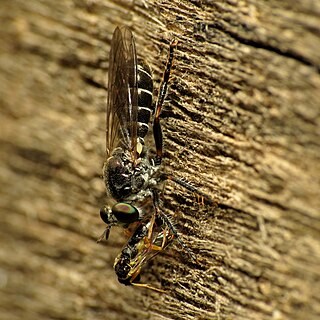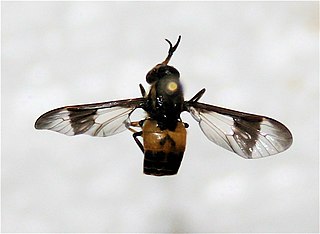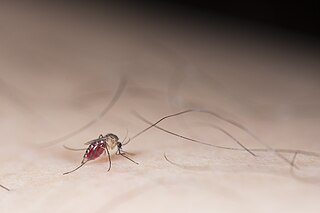 W
WAtomosia puella is a species of robber flies in the family Asilidae.
 W
WBibio xanthopus is a species of March fly (Bibionidae) first identified by Wiedemann in 1828. It is one of the most common species of Bibio in North America. The body is black with pale coloured pile and legs that are predominantly rufous. The size of the species varies considerably, with wingspans ranging from 5.5 to 9.5 mm.
 W
WChrysops geminatus is a species of deer fly in the family Tabanidae.
 W
WCulex sitiens is an insect native to coastal areas of East Africa and Madagascar, southwestern Asia, Ryukyu Archipelago, Korea, northern Australia and South Pacific islands.
 W
WDichelacera alcicornis is a species of horse flies in the family Tabanidae.
 W
WEuceraphis punctipennis, the downy birch aphid or European birch aphid, is a species of aphid in the order Hemiptera. These aphids are tiny green insects with soft bodies and membranous wings. They are found living on downy birch trees where they feed and multiply on the buds and leaves by sucking sap.
 W
WHadrotettix trifasciatus, known generally as the three-banded grasshopper or three-banded range grasshopper, is a species of band-winged grasshopper in the family Acrididae. It is found in North America.
 W
WLepidophora lepidocera, the scaly bee fly, is a species of bee flies in the family Bombyliidae.
 W
WMachimus notatus is a species of robber flies in the family Asilidae.
 W
WMallophora orcina, the southern bee killer, is a species of robber flies in the family Asilidae.
 W
WMegachile leachella is a species of bee in the family Megachilidae. It was described by John Curtis in 1828.
 W
WPalmodes occitanicus is a species of thread-waisted wasp in the family Sphecidae.
 W
WPlesiodema pinetella is a true bug. The species is found across Palearctic from Europe and Western North Africa East to Siberia and Central Asia.
 W
WTabanus melanocerus is a species of horse fly in the family Tabanidae.. Often confused with Tabanus petiolatus or Tabanus trimaculatus.
 W
WTrypoxylon clavicerum is a Palearctic species of solitary wasp.